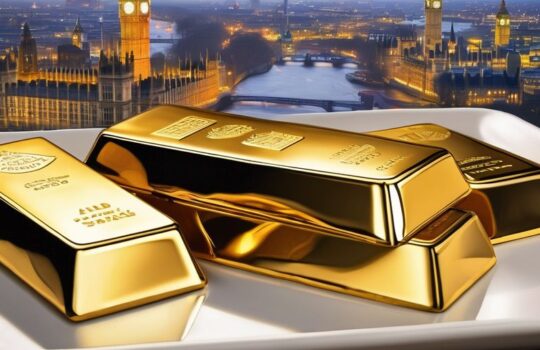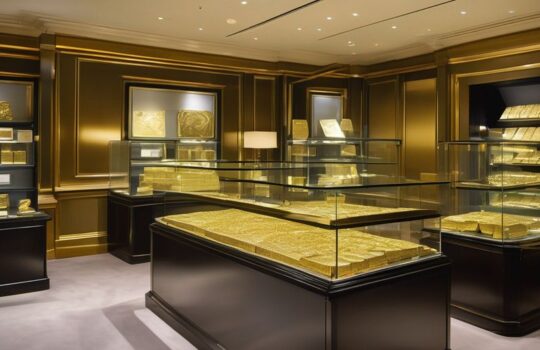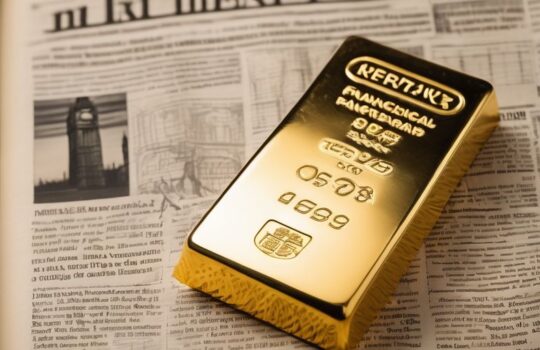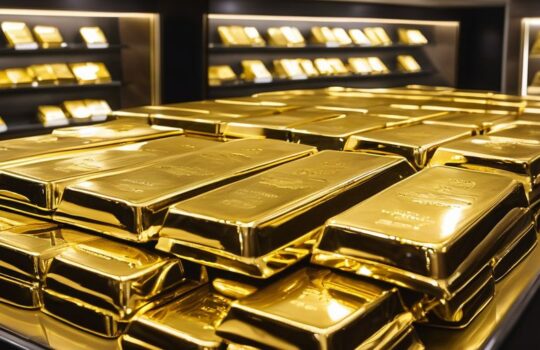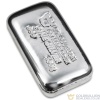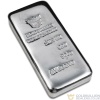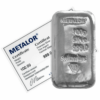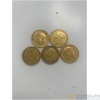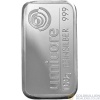How to Successfully Sell Silver Bars in the UK
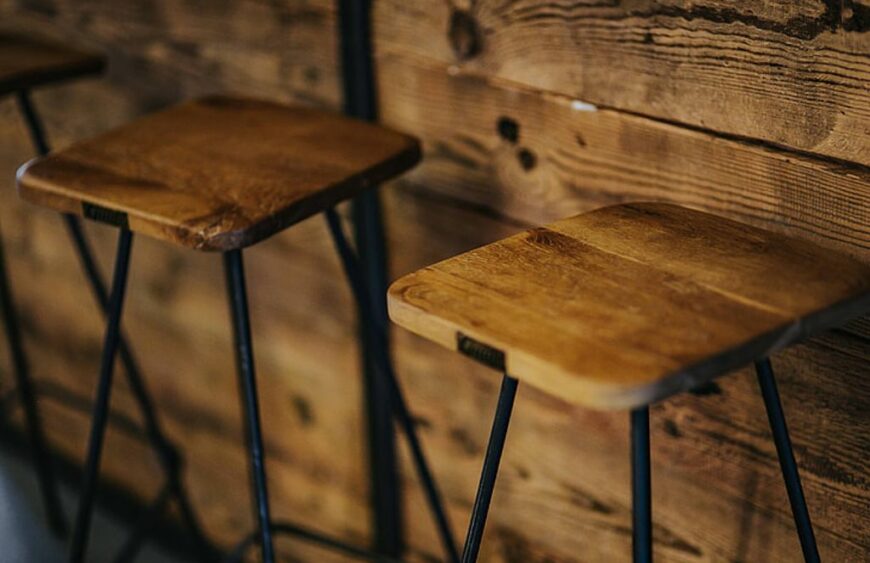
When it comes to selling silver bars in the UK, understanding the market, finding reputable buyers, and ensuring authenticity are essential steps. Additionally, proper storage and insurance considerations play a crucial role in the selling process. This article will provide valuable insights into successfully navigating the UK silver market and selling silver bars with confidence.
Key Takeaways
- Factors affecting silver prices include industrial demand, geopolitical events, and inflation.
- Finding a reputable buyer involves research, reviews, and transparent communication.
- Conducting the magnet test is a simple way to check the authenticity of silver bars.
- Secure storage options for silver bars include safe deposit boxes and specialised vaults.
- Insurance considerations for silver bars should include coverage for theft, damage, and loss.
Understanding the Silver Market

Factors Affecting Silver Prices
The price of silver is influenced by a myriad of factors, making it a dynamic and sometimes unpredictable market. Economic indicators, such as inflation rates, currency values, and economic health, play a crucial role in determining silver prices. Additionally, geopolitical events and market speculation can lead to sudden shifts in demand and pricing.
- Economic indicators
- Geopolitical events
- Market speculation
Another key factor is the industrial demand for silver, which accounts for a significant portion of its overall demand. Silver’s unique properties, such as conductivity and malleability, make it indispensable in various industries, including electronics, solar panels, and medical devices.
Silver’s value is not only derived from its investment appeal but also from its widespread industrial applications.
Trends in Silver Demand and Supply
The dynamics of silver demand and supply are pivotal in understanding the silver market. The demand for silver is multifaceted, encompassing industrial applications, jewellery, and investment purposes. On the supply side, silver production is influenced by mining activities, recycling, and the sale of silver reserves by governments and institutions.
Recent trends indicate a significant shift towards renewable energy and technology sectors, which has increased the demand for silver due to its conductive properties. This is further supported by the snippet highlight, indicating that "electronics silver demand is set to rise." Conversely, supply constraints have been observed due to challenges in mining operations and geopolitical tensions.
It’s crucial to monitor these trends closely as they can significantly impact silver prices.
Understanding these dynamics is essential for anyone looking to sell silver bars in the UK, as it helps in making informed decisions about the timing and pricing of sales.
Selling Silver Bars in the UK

Finding a Reputable Buyer
Finding a reputable buyer is crucial when looking to sell silver bars in the UK. Ensure you conduct thorough research on potential buyers to ascertain their credibility and the fairness of their offers. Look for buyers with positive reviews, a strong presence in the market, and transparent buying processes.
Certification and membership in professional bodies, such as the British Numismatic Trade Association, can be a good indicator of a reputable buyer. Additionally, consider if the buyer offers a buy-back guarantee, which can add certainty and value to your transaction.
When selecting a buyer, prioritise those who offer fair market value for your silver bars. Avoid pawnbrokers and some online dealers who may pay significantly under the spot price.
Here are a few steps to identify a reputable buyer:
- Check for online reviews and testimonials.
- Verify their certification and professional memberships.
- Inquire about their buy-back policy.
- Compare their offered price with the current market value.
Understanding the Selling Process
Once you’ve found a reputable buyer, understanding the selling process is crucial to ensure a smooth transaction. Ensure you’re familiar with the buyer’s requirements such as proof of ownership and identification. This could include original purchase receipts, photo ID, and proof of address.
It’s essential to know the market value of your silver bars before selling. This knowledge will help you negotiate a fair price.
Here are some steps to follow when selling your silver bars:
- Gather all necessary documentation.
- Know the current silver market price.
- Contact the buyer to arrange a valuation.
- Agree on a price and complete the sale.
Remember, the selling process can vary slightly depending on the buyer, so it’s important to ask questions and understand their specific procedures.
Testing the Authenticity of Silver Bars

Conducting the Magnet Test
The magnet test is a simple yet effective way to initially assess the authenticity of silver bars. Silver, being a non-ferrous metal, does not attract to a magnet, which serves as a quick indicator of its genuineness. However, it’s important to perform this test carefully to avoid damaging the item.
Remember, the magnet test should be complemented by other methods for a comprehensive evaluation.
Here’s a step-by-step guide for conducting the magnet test:
- Hold the Magnet Close: Gently bring the magnet close to the silver bar, ensuring not to scratch its surface.
- Observe the Reaction: If the silver bar is not attracted to the magnet, it’s likely genuine. Conversely, if there is attraction, the bar might be composed of a magnetic metal or alloy.
- Combine with Other Tests: To ensure accuracy, it’s beneficial to combine the magnet test with additional assessments, such as the ice test or professional appraisal.
While the magnet test is particularly handy for items like jewellery or coins, it’s also applicable to silver bars. Keep in mind that silver-plated items may not be magnetic but could still be non-silver underneath. Therefore, a strong attraction to a magnet suggests a ferromagnetic core, indicating the item is not pure silver. For a comprehensive assessment, consider additional tests like nitric acid or seek a professional appraisal, especially for items of high value or sentimental worth.
Understanding Hallmarking Standards
Understanding hallmarking standards is crucial for anyone looking to sell silver bars in the UK. Hallmarks are official marks stamped on silver items to certify their purity and authenticity. The UK Hallmarking Act of 1973 mandates that all silver items, except for coins and investment bars, bear these marks. A full UK hallmark includes the ‘Maker’, ‘Traditional Fineness’, ‘Millesimal Fineness’, ‘Assay Office’, and ‘Date Letter Mark’.
Learning to interpret these hallmarks is like deciphering a secret code that unlocks the history and authenticity of your silver possessions. It’s essential for sellers to familiarise themselves with these marks, as they significantly impact the value and saleability of silver bars.
Hallmarks are not only about purity but also tell a story about the silver’s origin, its maker, and sometimes its year of production.
For those new to silver selling, here’s a quick guide to the key components of a UK hallmark:
- Maker: Identifies the creator of the item.
- Traditional Fineness: Indicates the type of precious metal.
- Millesimal Fineness: Shows the purity of the metal in parts per thousand.
- Assay Office: Specifies the office that tested and certified the metal.
- Date Letter Mark: Provides the year of marking.
Storing and Insuring Silver Bars

Secure Storage Options
When considering the storage of silver bars, it’s essential to choose a method that ensures both security and accessibility. Secure storage options range from home safes to private vault services, each with its own set of benefits. For those looking to store their silver bars outside their home, private vault services offer a high level of security. These facilities are typically equipped with advanced security measures such as 24/7 surveillance, armed guards, and class 3 vaults.
It’s crucial to ensure that your silver is stored in a facility that is fully allocated and segregated. This guarantees that your investment is both safe and distinctly yours, separate from others.
For individuals preferring home storage, it’s important to invest in a robust safe that is both fireproof and waterproof. This provides a secure environment for your silver bars while keeping them readily accessible. Additionally, consider the use of interlocking cases for individual bars to prevent surface damage and facilitate easier handling.
Insurance Considerations
When insuring your silver bars, it’s crucial to understand that standard home insurance policies may not provide adequate coverage for precious metals. Specialised precious metals insurance is often necessary to fully protect your investment against theft, loss, or damage. This type of insurance is designed specifically for high-value items like silver bars, offering peace of mind and financial security.
It’s advisable to thoroughly research and compare insurance options to ensure you’re getting the best coverage for your silver bars.
Insurance companies typically offer various levels of coverage, so it’s important to assess your specific needs. Consider factors such as the total value of your silver collection, storage conditions, and any specific risks associated with your location. Here’s a brief overview of what to look for in a precious metals insurance policy:
- Comprehensive coverage against theft, loss, and damage
- Coverage that matches or exceeds the total value of your silver bars
- Options for in-home storage or third-party secure storage facilities
- Flexibility in coverage limits and deductibles to suit your budget and needs
Conclusion
In conclusion, selling silver bars in the UK requires careful consideration of market rates, storage options, and reputable buyers. It’s important to conduct thorough research and ensure the authenticity of the silver bars before making any transactions. By following these guidelines, sellers can navigate the process successfully and make informed decisions about selling their silver bullion.
Frequently Asked Questions
How can I find a reputable buyer for my silver bars in the UK?
You can find a reputable buyer for your silver bars in the UK by researching and verifying the credentials of potential buyers. Look for established bullion dealers or reputable precious metals companies with a track record of fair dealings and transparent processes.
What is the selling process for silver bars in the UK?
The selling process for silver bars in the UK typically involves contacting a buyer, negotiating the price, arranging for secure transportation of the bars, and completing the sale transaction. It’s important to ensure that the buyer follows industry-standard procedures and provides a transparent selling process.
How can I test the authenticity of my silver bars?
You can test the authenticity of your silver bars by conducting the magnet test, which involves using a common magnet to check for magnetic properties. Additionally, understanding hallmarking standards and looking for official hallmarks can help verify the authenticity of silver bars.
What are the secure storage options for silver bars in the UK?
Secure storage options for silver bars in the UK include professional vault storage facilities, secure deposit boxes at reputable institutions, and insured storage services offered by trusted bullion dealers. It’s important to choose a storage option that provides maximum security and insurance coverage.
What insurance considerations should I keep in mind for my silver bars?
When storing silver bars, it’s important to consider insurance coverage to protect against theft, loss, or damage. Look for insurance policies specifically tailored to precious metals storage, and ensure that the coverage amount matches the total value of your silver bars.
What are the hallmarking standards for silver bars in the UK?
The hallmarking standards for silver bars in the UK involve specific markings such as the maker’s mark, traditional fineness, millesimal fineness, assay office mark, and date letter mark. Understanding these hallmarks can help verify the authenticity and quality of silver bars.

